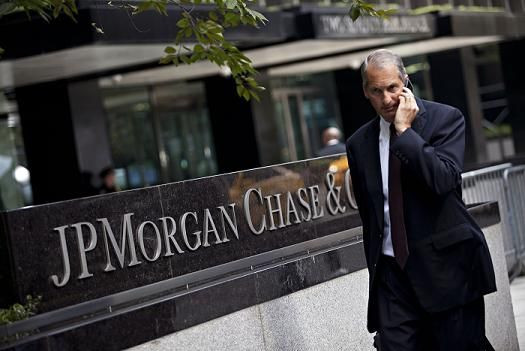Shadow Banking Hits Record $67 Trillion Globally, Led By The US; FSB Urges Tough Rules

It’s hard to regulate what you can’t see and that’s why the so-called “shadow banking” – a whole range of activities that replicate some of the activities of regulated banks but fall outside of traditional oversight – has grown to a new high globally last year, a top regulatory group said, calling for tougher rules to prevent the obscure sector from triggering a new financial crisis.
The Financial Stability Board, a global financial policy group comprised of regulators and central bankers, found that shadow banking around the world more than doubled to $62 trillion in five years to 2007 before the crisis hit. The size of the total system had grown to $67 trillion in 2011 -- more than the total economic output of all the countries in the study.
The U.S. has the world's largest shadow banking system, with assets of $23 trillion in 2011. It is followed by the euro zone with $22 trillion and Britain with $9 trillion, according to the FSB. However, the share of activity based in the U.S. has declined from 44 percent in 2005 to 35 percent in 2011, while the shares of the U.K. and the euro area have increased.
Regulators blame the activities of a collection of investment banks, hedge funds, insurers and other non-bank financial institutions for masking the true extent of the risk that built up in the financial system before the collapse of Lehman Brothers Inc., which triggered an economic and financial crisis that swept across the globe in 2008.
The housing bubble and subsequent credit crisis brought attention to the shadow banking system, which funneled a great deal of money into the U.S. residential mortgage market during the bubble.
Apart from the absence of regulation and reporting requirements, the nature of the operations within the shadow banking system – financing long-term commitments with short-term debt – makes it very vulnerable to increases in short-term rates. Many institutions would be forced to liquidate investments and make margin calls when those rates rise. Moreover, while these institutions do not face stringent regulations as they are not part of the formal banking system, they also don’t have access to the same emergency funding facilities.
On Sunday, the Basel-based regulatory group pushed for tighter rules on the shadow banking system.
The size of the shadow banking system “can create systemic risks” and “amplify market reactions when market liquidity is scarce,” the FSB said in the report published on its website.
“Appropriate monitoring and regulatory frameworks for the shadow banking system needs to be in place to mitigate the build-up of risks,” it said.
The FSB proposed rules limiting the assets that money-market funds can invest in, and forbidding them from offering investors capital guarantees. It also suggested that fund managers be forced to provide sufficient disclosure to clients in relation to re-hypothecation of assets so that clients can understand their exposures in the event of a failure of the intermediary.
"The FSB is of the view that the authorities' approach to shadow banking has to be a targeted one," the group said. "The objective is to ensure that shadow banking is subject to appropriate oversight and regulation to address bank-like risks to financial stability.”
The recommendations are open for consultation until Jan. 14, 2013, with final recommendations to be published next September.
© Copyright IBTimes 2024. All rights reserved.












